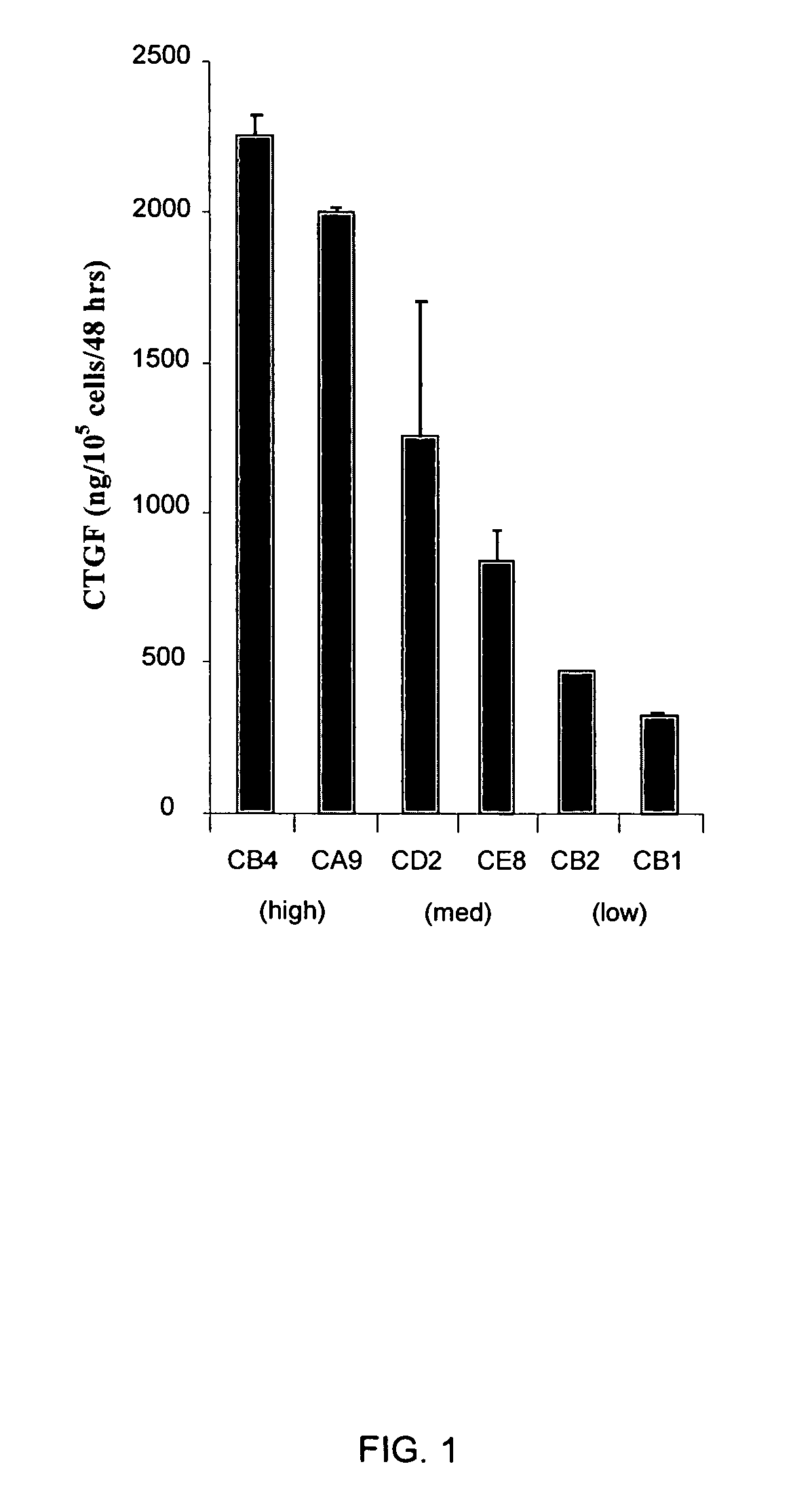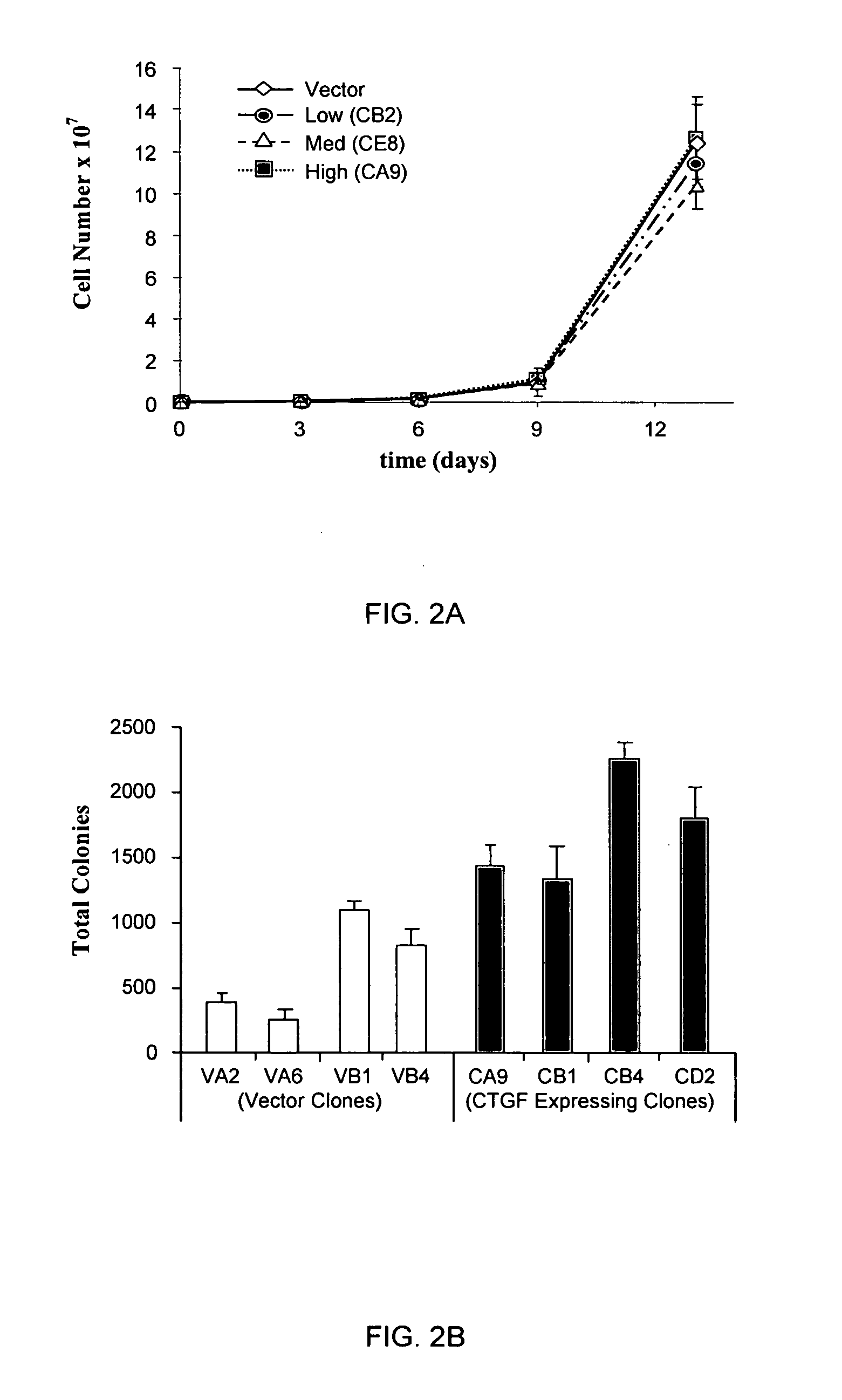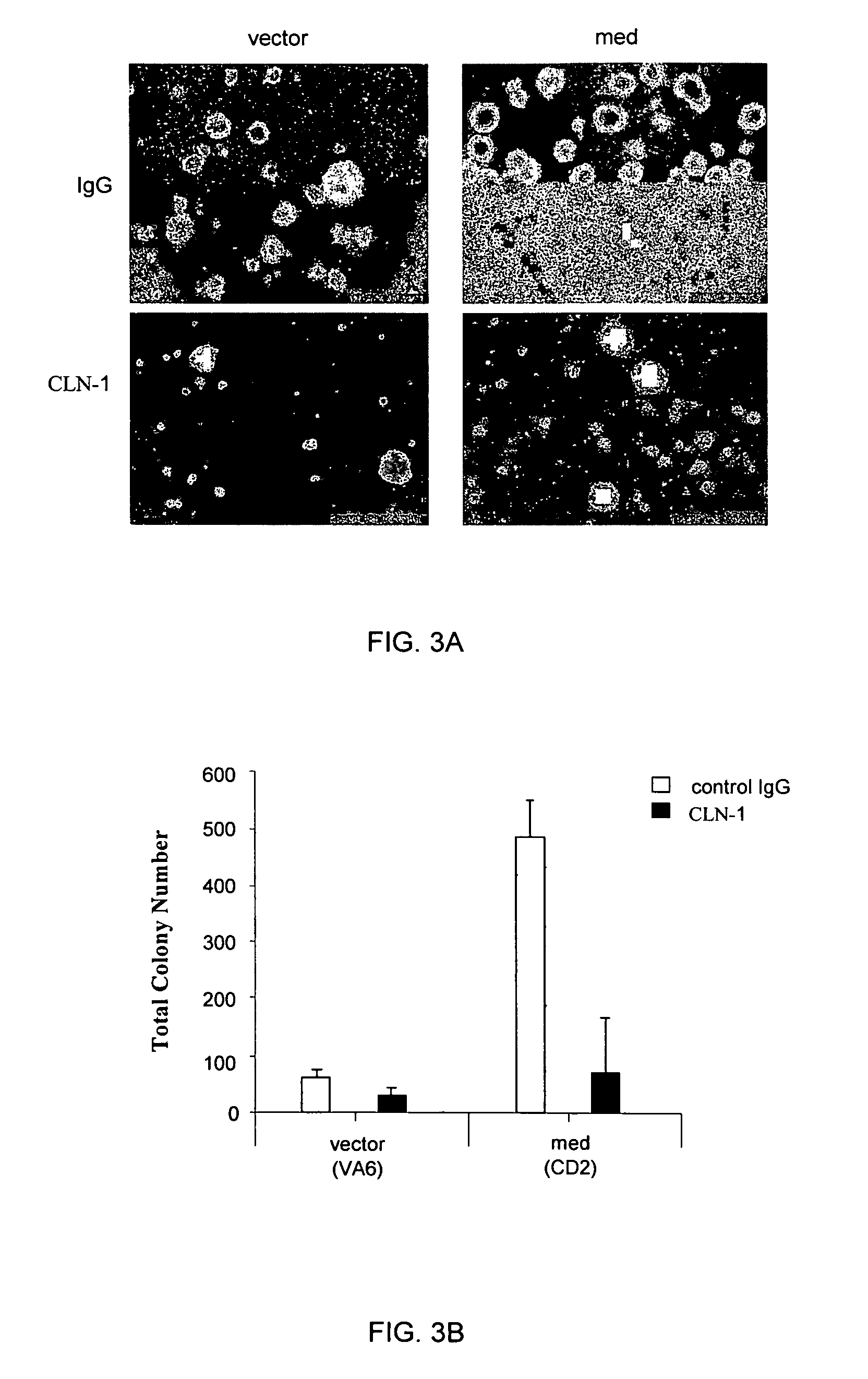Treatments for cancer
a cancer and tumor technology, applied in the field of cancer treatment, can solve the problems of cancer patients' death, poor response to such treatments, and significant toxicities of chemotherapy agents, and achieve the effects of reducing the survival rate of pancreatic tumor cells, and reducing the expansion of pancreatic tumors
- Summary
- Abstract
- Description
- Claims
- Application Information
AI Technical Summary
Benefits of technology
Problems solved by technology
Method used
Image
Examples
example 1
Generation of Cell Lines Expressing Different Levels of CTGF
[0057]MIA PaCa-2 cells (American Type Culture Collection (ATCC), Manassas Va.) are reportedly insensitive to the growth inhibitory effects of TGF-β1. (See, e.g., Freeman et al. (1995) J Cell Physiol 165:155-163.) To determine if MIA PaCa-2 cells would provide a suitable host for exongenous CTGF expression, both constitutive and TGFβ-inducible expression of CTGF was determined by measuring CTGF levels in cell culture supernatants using an ELISA assay that measures both cleaved N-terminal fragment and whole CTGF. (See International Publication No. WO 03 / 024308, incorporated by reference herein in its entirety.) As CTGF expression was not detected in either untreated or TGF-β2-treated cultures, MIA PaCa-2 cells were used to generate cells expressing various levels of CTGF.
[0058]MIA PaCa-2 cells were transfected with pSCMV-Puro-CTGF, an adenoviral construct encoding full-length CTGF and the puromycin antibiotic-resistance gene,...
example 2
CTGF Enhances Anchorage-independent Growth
[0060]In vitro cellular growth rates of vector control and low-, medium-, and high-CTGF expressing clones were measured to determine whether higher levels of CTGF expression alter the ability of tumor cells to survive and / or proliferate. Clonal cell lines were cultured in standard culture plates for up to 12 days, with cells harvested and counted after 3, 6, 9 and 12 days. No difference in the rate or level of cell accumulation was seen between vector control cells and cells expressing different levels of CTGF (FIG. 2A).
[0061]AIG is a common characteristic of cancer cells. Although CTGF apparently was unable to induce AIG independently, it was required for the induction of AIG by TGF-β1. (See, e.g., Frazier et al. (1996) J Invest Dermatol 107:404-411; and Kothapalli et al. (1997) Cell Growth Differ 8:61-68.) MIA PaCa-2 cells reportedly have a colony-forming efficiency in soft agar of approximately 19%. (Yunis et al. (1977) Int J Cancer 19:12...
example 3
Agents Inhibiting CTGF Reduce Anchorage-independent Growth
[0064]As CTGF enhances AIG (see above example), agents that reduce CTGF activity and / or availability were tested in the AIG assay to determine if they could reduce colony formation. The ability of antibodies that specifically target CTGF, such as those generally described in U.S. Pat. No. 5,408,040, to inhibit AIG in MIA PaCa-2 cells was tested using the soft agar assay as described above with the following modifications. A human monoclonal antibody, CLN-1 (see International Publication WO 2004 / 108764), which specifically binds CTGF, or a control human IgG was added at a final concentration of 100 μg / ml to soft agar containing CTGF-expressing clone CD2 cells or null vector clone VA6 cells. Plates were re-fed on day 5 with 1.5 ml top layer containing 100 / g / ml of CLN-1 or human IgG. Plates were incubated for 11 days and assessments were carried out as described above.
[0065]As shown visually in the lower panels of FIG. 3A, CLN-1...
PUM
| Property | Measurement | Unit |
|---|---|---|
| concentration | aaaaa | aaaaa |
| body weight | aaaaa | aaaaa |
| volume | aaaaa | aaaaa |
Abstract
Description
Claims
Application Information
 Login to View More
Login to View More - R&D
- Intellectual Property
- Life Sciences
- Materials
- Tech Scout
- Unparalleled Data Quality
- Higher Quality Content
- 60% Fewer Hallucinations
Browse by: Latest US Patents, China's latest patents, Technical Efficacy Thesaurus, Application Domain, Technology Topic, Popular Technical Reports.
© 2025 PatSnap. All rights reserved.Legal|Privacy policy|Modern Slavery Act Transparency Statement|Sitemap|About US| Contact US: help@patsnap.com



